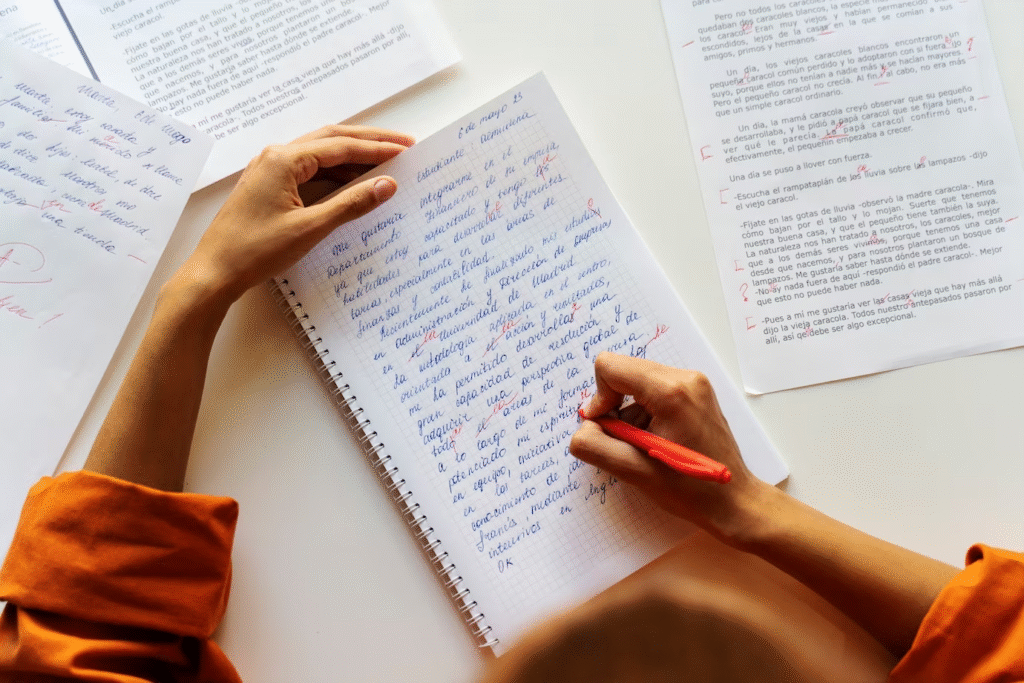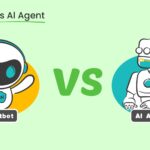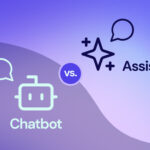Will AI Ever Write a Truly Great Application Essay?
Are you wondering will ai become advanced enough to write good application essays. Application essays have always been the place where your story takes center stage a chance to go beyond grades and test scores. With today’s technology writing everything from emails to novels, it’s natural to wonder if it could also craft a compelling college or scholarship essay. In this article, we’ll explore how close we really are, what makes a personal statement stand out, and whether advanced writing tools could ever match genuine human insight.
Table of Contents
How Much Are Students Actually Using AI to Write Essays?
Let’s look at some real-world numbers to answer the question “Will AI become advanced enough to write good application essays?” by seeing how students are already using it.
- Pervasive Adoption: A 2025 survey reveals that a staggering 92% of students are now using generative AI tools in some form for their studies, marking a significant increase from previous years.
- Direct Application in Assessments: 88% of students have utilized these tools specifically for assessments, indicating a deep integration of AI into academic assignments.
- Controversial Use of Generated Text: The most notable finding is that 18% of students have admitted to including AI-generated text directly in their submitted work, raising serious questions about academic integrity.
- Student Motivations: The primary drivers behind this trend are a desire for efficiency and improved quality, with students citing that AI helps them save time and produce better work.
- Ethical Conflict: A paradox exists where a portion of students who use AI to generate text for their essays also express a feeling of discomfort, highlighting a conflict between technological convenience and personal values of originality.
These numbers tell us that AI isn’t a niche tool anymore it’s becoming a staple in academic workflows. When students discover “will AI become advanced enough to write good application essays?”, these figures show they’re not just curious they’re already experimenting. It underscores how essential it is to explore both the benefits and the risks of using AI for such high-stakes writing.
What Makes a Good College or Scholarship Application Essay?
A great application essay isn’t just well-written it’s personal. Admissions officers are looking for a voice that feels genuine, a story only you could tell. That means showing self-reflection, weaving in your experiences, and letting your personality shine. Structure and grammar matter, of course, but what really sets an essay apart is authenticity. If you’ve ever wondered why some writing feels cold or mechanical, it’s often because it lacks that human touch. I’ve actually covered this in [how to make writing sound less like AI], where I break down how to keep your words alive on the page.
Note: Focus less on “sounding smart” and more on “sounding real” clarity and sincerity consistently outperform overly complex writing in admissions essays.
AI Essay Writing: Current Strengths and Limitations
There’s no denying that advanced writing tools can produce essays that are clear, well-structured, and grammatically flawless. They’re great at brainstorming topic ideas, creating outlines, and even suggesting catchy opening lines. For many students, this can feel like a huge time saver especially when deadlines are closing in fast.
But here’s the catch: even the most polished AI draft often misses the soul of a personal story. It tends to lean on generic phrases, recycle overused metaphors, and skip over the tiny, human details that make a reader smile or pause. That’s where people start asking, has (AI gone too far?) Because while it’s helpful for quick drafts, it still struggles to capture the lived experiences that admissions essays thrive on.
Ethics, Authenticity, and College Admissions
Colleges want to get to know you, not an algorithm’s best guess of who you are. Submitting an essay written entirely by AI risks raising questions about authenticity and many institutions now have detection methods in place. Some admissions officers have even admitted that essays “too perfect” can trigger suspicion.
There’s also the skill-building side to think about. Writing your own application essay forces you to organize your thoughts, reflect on your journey, and communicate in your own style. Skipping that process can mean missing out on valuable personal growth. Still, when used thoughtfully, AI can help students with language barriers or writer’s block express themselves more clearly. The key is making sure it’s a tool for guidance, not a replacement for your voice.
Will AI Become Advanced Enough to Write Good Application Essays?
If technology keeps improving at its current pace, we may one day see tools that mimic emotional depth more convincingly. They could adapt to your tone, pick up on your life details, and create essays that feel far more personal than what’s possible now. But even then, they’d be drawing from patterns, not genuine memories.
What’s more likely is that AI will settle into the role of a writing assistant helping with structure, flow, and clarity while the heart of the essay still comes from you. Think of it as having a super-sharp editor at your side, not a ghostwriter taking over the entire piece. That’s the only way admissions essays will continue to feel real and stand out in a pile of hundreds.
How to Use AI Wisely for College and Scholarship Essays
The smartest way to use AI in your application writing process is to keep control from start to finish. Begin with your own ideas even if they’re messy bullet points then use technology to refine them. You can ask for feedback on grammar, get help tightening your sentences, or find better ways to transition between paragraphs.
Once you’ve got a draft, step back and add the details only you can provide: a specific conversation, a moment that changed your perspective, or an obstacle that shaped your character. That’s the magic stuff no algorithm can invent. If you want to see more about balancing tech with personal writing, I explored this in is freelance writing hard with ChatGPT, where I share how writers are using AI tools without losing their style.
things to do and avoid using AI for writing essays
things you should do
- Start with your own brainstorming — jot down raw ideas, personal memories, and themes before using AI.
- Use AI for structure and clarity — let it help with grammar, transitions, and logical flow.
- Ask targeted questions — prompt AI for specific improvements, not generic rewrites.
- Layer in unique details — include personal moments, experiences, and emotions only you can share.
- Treat AI as a co-editor, not a ghostwriter — maintain your voice while letting the tool refine it.
things you should avoid
- Don’t paste a generic prompt and accept the first output — you’ll end up with bland, forgettable writing.
- Don’t remove all imperfections — overly polished essays can look suspicious to admissions officers.
- Don’t let AI choose your main story — it can’t truly know your personal journey.
- Don’t skip the reflection process — writing your own ideas helps you clarify your thinking.
- Don’t ignore originality checks — ensure your work passes plagiarism and AI-detection tools.
Top 10 AI tools for writing essays in 2025
| AI Tool | Key Feature | Free/Paid |
| ChatGPT | Versatile, flexible | Free, Paid |
| Jasper AI | High-quality, tailored content | Paid |
| Writesonic | All-in-one, comprehensive | Paid |
| Copy.ai | Idea generation, outlining | Free, Paid |
| QuillBot | Paraphrasing, summarizing | Free, Paid |
| Grammarly | Editing, plagiarism checking | Free, Paid |
| Jenni AI | Research-focused, academic | Free, Paid |
| Textero.ai | Context-aware, citation support | Free, Paid |
| Aithor | Academic sources, originality check | Free, Paid |
| Paperpal | Citation and research assistance | Free, Paid |
Final Thoughts
AI has already changed the way we approach writing, but when it comes to application essays, it’s not about whether it can write it’s about whether it can connect. And right now, that deep human connection is still something only you can bring to the table.
Use AI to make the process smoother, not to replace the thinking and reflection that make your essay yours. Admissions officers aren’t looking for perfect they’re looking for real. And real comes from your own words, shaped by your own experiences, with maybe just a little tech help to polish the edges. did this guide help in answering the big question will ai become advanced enough to write good application essays?
How can students make sure their AI-assisted essay still sounds authentic?
By adding personal stories, unique experiences, and genuine reflections that only they can provide, while using AI for structure or grammar help.
What’s the best way to fact-check an AI-generated application essay?
Cross-verify every claim, statistic, or program detail using official university sources, rather than assuming AI output is correct.
How do I prevent my AI-written essay from triggering plagiarism detectors?
Rewrite AI-generated text in your own words, keep the tone personal, and run it through plagiarism-checking tools before submission.
Can AI help me brainstorm ideas if I have writer’s block?
Yes you can ask AI for topic suggestions or prompts, then expand on them with your own life experiences and goals.
How should I balance AI assistance with my own creativity?
Use AI for structure, grammar, and flow, but make the content and emotional depth entirely your own so it reflects your personality.





